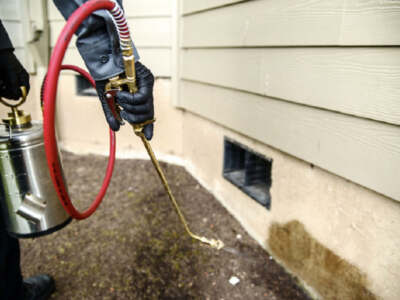In today’s world, the boundary between work and personal life has become increasingly blurred, especially with the rise of remote work. Many of us find ourselves struggling to switch off and destress after a long day at work, as the office is now just a few steps away from our own homes.
This can become a huge issue for people’s mental health. Your home should be the place where you relax after a long day at your job. If your workspace is also your bedroom, you may find yourself having difficulties finding the calming aspect that your home should possess.
However, with a few intentional changes, you can transform your home into a stress-free zone that helps you separate from the stress of work. In this blog, we’ll explore effective ways to destress after work at home and make your space a haven of relaxation.
1. Separate Your Stress-Free Zone:
The initial step in crafting a haven of relaxation and separation from work is to establish a dedicated workspace. This space should embody the essence of relaxation: it should be comfortable, ergonomically designed, and ideally situated away from your leisure areas.
When your work setup resides within a specific stress-free zone, it becomes infinitely easier to mentally “leave” work behind when it’s time to unwind. At the end of your workday, ensure you shut down your computer, tidy up your workspace, and physically step away from it, reinforcing the idea of your stress-free area.
2. Design a Calming Environment:
Your home’s ambiance can significantly impact your stress levels. Consider incorporating soothing colors, soft lighting, and calming decor into your living space. Earthy tones like soft blues, greens, and neutral hues can create a serene atmosphere. Use soft, warm lighting through lamps or candles to create a cozy and inviting environment.
3. Declutter and Organize:
A cluttered home can lead to a cluttered mind. Spend some time decluttering and organizing your living spaces. Tackle one area at a time, like your bedroom, living room, or kitchen. Donate or discard items you no longer need, and invest in storage solutions to keep things organized. A tidy home can promote a sense of order and relaxation.
4. Establish a Relaxation Corner:
Create a dedicated relaxation corner in your home. This could be a cozy reading nook with a comfortable chair and soft blankets, a meditation space with cushions and soothing music, or simply a quiet spot where you can sit and unwind. Make it a rule to spend some time in your relaxation corner each day to disconnect from work-related stress.
5. Bring Nature Indoors:
Integrating elements of nature into your home can have a calming effect. Consider adding houseplants to your living space or placing fresh flowers in vases. Nature-inspired artwork and decor can also help create a more relaxing atmosphere.
6. Set Boundaries:
One of the challenges of working from home is the constant accessibility of work-related tasks. Establish clear boundaries by setting specific work hours and sticking to them. Communicate your schedule with your family or housemates, so they know when you’re off-limits for work-related discussions.
7. Unplug from Screens:
After spending hours on digital devices for work, it’s crucial to disconnect from screens to unwind effectively. Dedicate time to unplug from your phone, computer, and TV. Instead, engage in activities that promote relaxation, such as reading a book, practicing mindfulness, or taking a soothing bath.
8. Incorporate Mindfulness Practices:
Mindfulness techniques, such as meditation and deep breathing exercises, can be powerful tools for destressing. Dedicate a corner of your home to mindfulness practices with comfortable cushions, soft lighting, and calming elements. Spend a few minutes each day in mindfulness to clear your mind and reduce stress.
9. Create a Spa-Like Bathroom:
Your bathroom can be a sanctuary for relaxation. Consider upgrading your bathroom with soothing colors, fluffy towels, and luxurious bath products. Take the time to pamper yourself with a warm bath or shower after work to wash away the stress of the day.
10. Engage in Relaxing Hobbies:
Invest time in hobbies or activities that help you unwind and recharge. Whether it’s painting, playing a musical instrument, gardening, or crafting, having a space dedicated to your hobbies can make it easier to engage in them regularly.
11. Prioritize Sleep:
Quality sleep is essential for destressing and maintaining overall well-being. Create a peaceful bedroom environment with comfortable bedding, blackout curtains, and minimal distractions. Follow a consistent sleep routine to ensure you get the rest you need.
12. Seek Social Connections:
Even if you work from home, it’s important to maintain social connections outside of work. Invite friends or family over for a meal or chat with them over video calls. Social interactions can provide much-needed emotional support and a sense of connection within your stress-free zone.
Completing your Stress-Free Zone Within your Home
Transforming your home into a stress-free zone requires intention and effort, but the benefits are well worth it. By creating dedicated spaces for work and relaxation, incorporating calming elements, and establishing boundaries, you can successfully separate yourself from the stress of work.
Make your home a place where you can truly unwind, recharge, and enjoy the peace and tranquility you deserve after a long day at work. Remember that the journey to a stress-free home is ongoing, so be patient with yourself and make adjustments as needed to create your perfect sanctuary.
Keyword:
Meta Description:














Comments